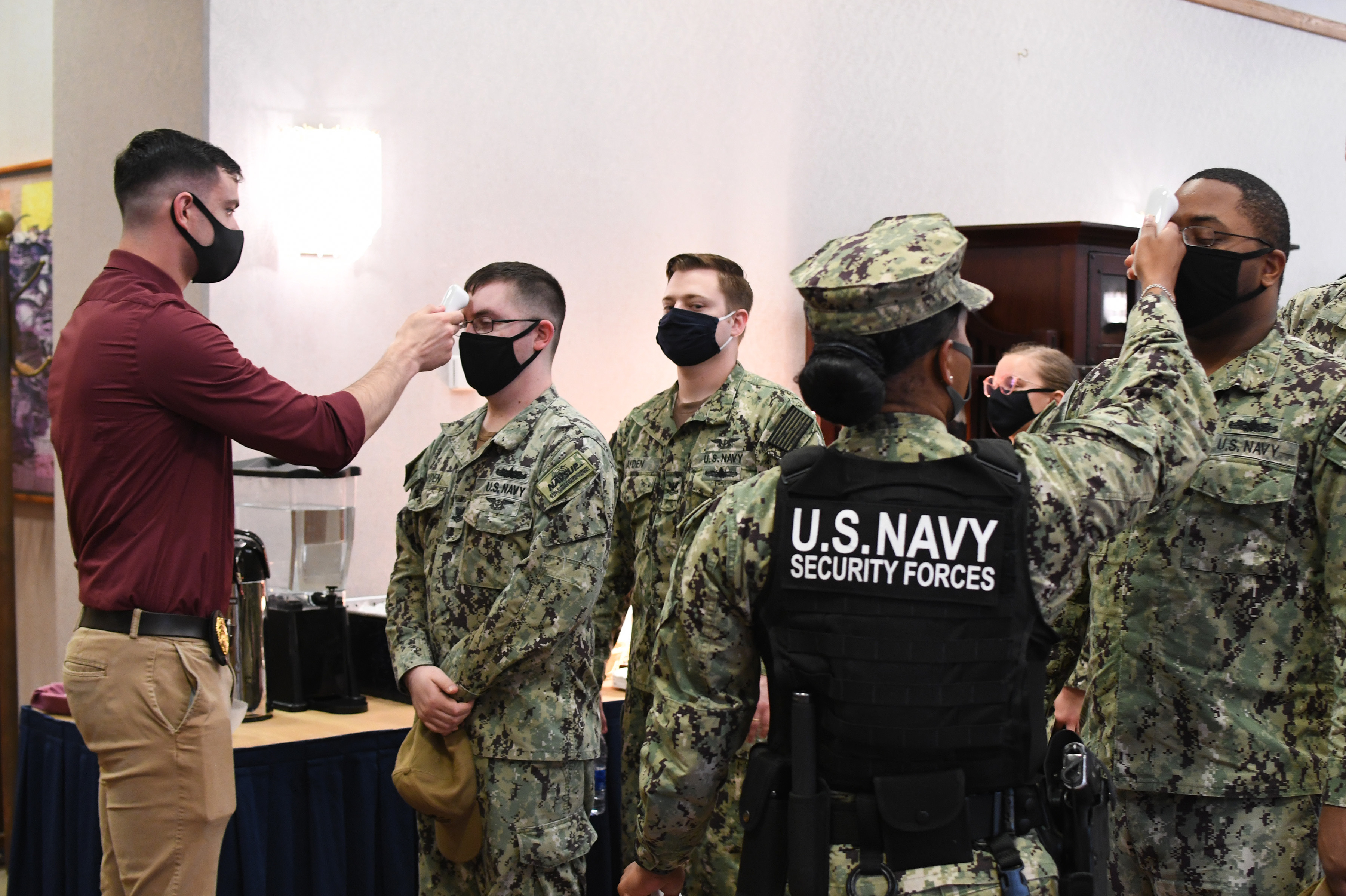
WASHINGTON: The Navy will continue its new COVID-era practice of longer deployments with fewer port calls, as leaders feel they have found a difficult but winning strategy to keep the virus in check among its crews.
Acknowledging the strain these new policies are putting on sailors and their families, the service is rushing mental health and pay services for those dealing with these deployments, and have sent new rules to the fleet mandating safety measures to be taken on ships at sea.
A major part of the Navy’s effort involves keeping ships out of ports where sailors could be infected, while extending some deployments to quarantine the crews. The USS Stout just set a Navy record for 208 consecutive days at sea — breaking the 207 day record set by the USS Dwight D. Eisenhower and the USS San Jacinto earlier this year.
Those back-to-back record cruises come on top of the new policy of embarking sailors at least two weeks before a ship deploys, meaning even more time away from their families and friends. Navy leaders have warned that ships will be making fewer calls at many ports for some time. The “restriction of movement” order, in which crews quarantine aboard a ship for at least two weeks before the ship gets underway, is now policy.
The pandemic “has added complexity,” to the Navy’s plans Vice Adm. Phil Sawyer, Deputy Chief of Naval Operations for Operations, Plans and Strategy told reporters last week. “But the [employment schedule] has not changed. “These deployments were designed and planned years ago before COVID. But it’s still hard on the crews and their families. We’ve taken a variety of actions to mitigate the stress and sacrifice with increased mental health availability and resiliency training.”
Vice Adm. John Nowell, chief of Navy Personnel, added that the service is attuned to the burden this is putting on families and said the service is pushing to get legislation through Congress to allow deployment pay — about $250 a month — to start when sailors board the ships, not when they set sail.
“By statute we could not start that counter when they had to go aboard the ship 14 days, 21 days early,” Nowell said. “And you know, that was a real gripe for the sailor, so we worked with the Secretary of the Navy, with OSD, and with the Hill and we’re very hopeful that a legislative proposal that we put in to allow us to start that 30-day clock beginning at the start of any pre-deployment.”
The Navy hopes to get language in the 2021 budget to allow the payments to start when the sailors board the ship. The budget remains in limbo despite the fiscal year having started on Oct. 1, and it’s not clear when it will considered or passed.
A deeper issue is the strain on families as well as the mental health of sailors who may not be able to get off the ship for months at a time, and are isolated during their deployment.
New Navy policies require the wearing not only of personal protective equipment such as facemasks, but it also mandates social distancing and splitting the crew into smaller groups that don’t interact with each other in order to stem any potential outbreak. Meal times are being staggered, with access to the gyms limited. The new rules have been codified in the newest Standardized Operational Guidance document, released last week.
Speaking of the mental strain placed on sailors in the new normal, Navy Surgeon General Rear Adm. Bruce Gillingham said during the call that the Navy is now deploying about 30 percent of its mental health professionals: “And we have found that this has had significant benefit in the sense that it lowers barriers to access, it decreases stigma, and we’re seeing that sailors are now more comfortable coming forward – they know these professionals, they know that they live and work with them, and so they’re coming forward earlier.”
All of these measures are being taken in the shadow of the disaster aboard the USS Theodore Roosevelt earlier this year, where more than 1,200 sailors tested positive for COVID, and one died. The outbreak would also see the firing of the ship’s captain and the firing of the acting Navy Secretary, Thomas Modly.
Chief of Naval Operations Adm. Mike Gilday told NBC News last month that this is simply the way the Navy lives now. “We have to have ships stay at sea another month or so longer as they do their training and instead of taking leave right after training before deployment, they roll right into deployment,” he said.
“We’re not pulling to port as frequently as we had before,” Gilday said. Instead, sailors will be given days off while at sea.

